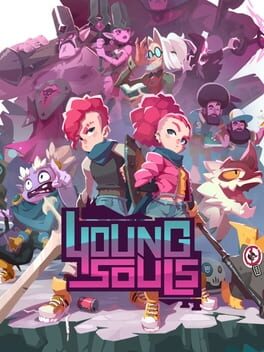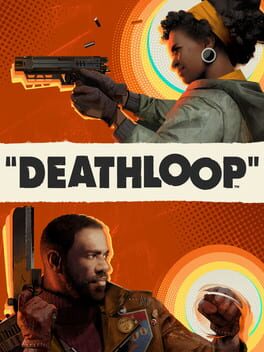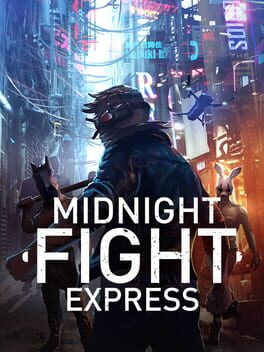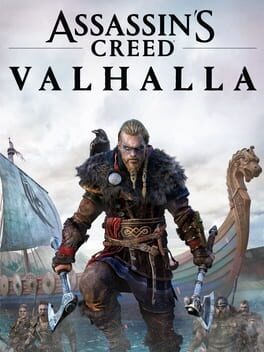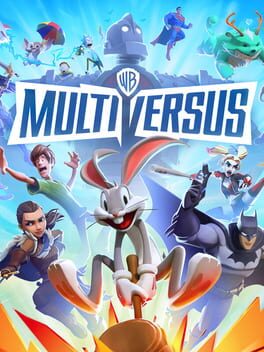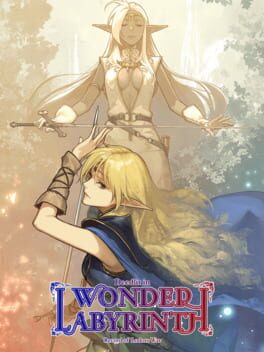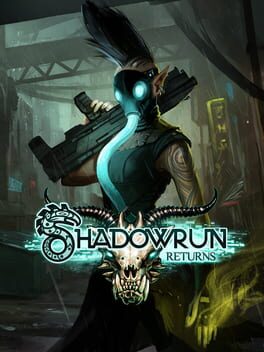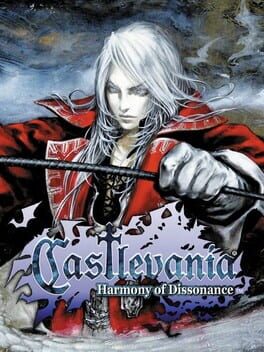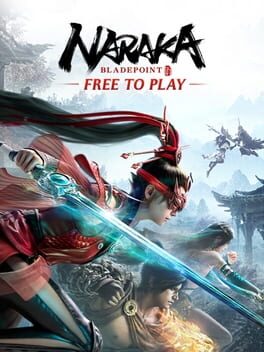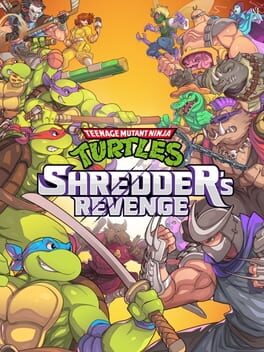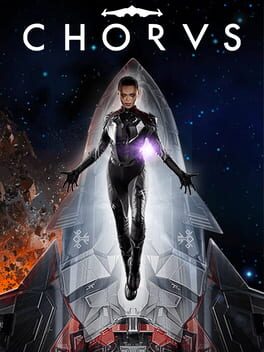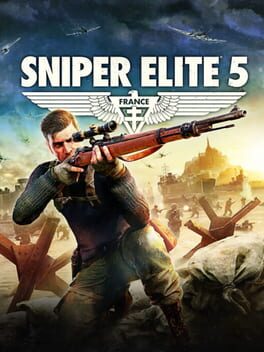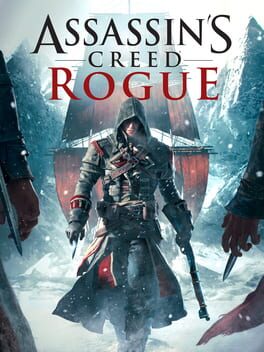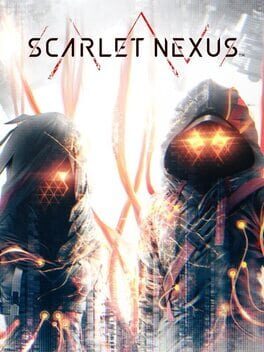GothamInGray
2019
2021
My one tip: Mess with the accessibility settings.
At first, the gameplay seemed a little stiff, which may be intentional, but I had a much better time after adjusting damage values and the ability to cancel attacks into blocking or dodging.
Now that that's out of the way, Young Souls has impressed me.
At first, I was unsure of the art style, but seeing it in motion, along with the fun character designs, it became something special almost immediately.
Similarly, even in the beginning, it seemed like the plot was leading to something worth saying, and despite my concerns, I think it actually lands on a pretty solid, well-considered message by the end—even if the final chapter goes by a bit too quickly.
Young Souls is a good way to spend a day or two between larger undertakings, as it finds success in unexpected—but appreciated—places.
At first, the gameplay seemed a little stiff, which may be intentional, but I had a much better time after adjusting damage values and the ability to cancel attacks into blocking or dodging.
Now that that's out of the way, Young Souls has impressed me.
At first, I was unsure of the art style, but seeing it in motion, along with the fun character designs, it became something special almost immediately.
Similarly, even in the beginning, it seemed like the plot was leading to something worth saying, and despite my concerns, I think it actually lands on a pretty solid, well-considered message by the end—even if the final chapter goes by a bit too quickly.
Young Souls is a good way to spend a day or two between larger undertakings, as it finds success in unexpected—but appreciated—places.
2021
Like every Arkane game I've tried, it has incredible production, great ideas, but for some reason, it just doesn't hit right with me. Maybe it's my aversion to first-person stealth, maybe it's a mission design thing that doesn't hit my brain in the right way.
A well-made game that deserves its praise, and I will continue to try every Arkane game that comes out, in hopes that one sits right with me someday.
A well-made game that deserves its praise, and I will continue to try every Arkane game that comes out, in hopes that one sits right with me someday.
A stellar soundtrack, relatively fun mechanics, and a pretty unnecessary story overall.
Midnight Fight Express is good because of its vibes above all else. There's nothing like a fast-paced action game with a synthwave OST, as Hotline Miami taught us years ago.
Unfortunately, the ballistic fun is hampered too often by random instant-kill effects every few levels. And worse yet, they're often difficult to react to and have pretty wacky hitboxes associated with them.
Midnight Fight Express is, mostly, head-empty fun, but it becomes extremely frustrating in the moments when it expects more of you than the mechanics allow.
Midnight Fight Express is good because of its vibes above all else. There's nothing like a fast-paced action game with a synthwave OST, as Hotline Miami taught us years ago.
Unfortunately, the ballistic fun is hampered too often by random instant-kill effects every few levels. And worse yet, they're often difficult to react to and have pretty wacky hitboxes associated with them.
Midnight Fight Express is, mostly, head-empty fun, but it becomes extremely frustrating in the moments when it expects more of you than the mechanics allow.
While Assassin's Creed Valhalla doesn't reach the same highs as Origins or Odyssey (near-masterpieces, both), it's still a resounding success for the franchise.
The Pros:
______________
The main story missions are (almost) universally well-crafted, introducing new, fun characters at every turn and (usually) ending in satisfying combat scenarios to put a nice bow on the small story arcs that make up Valhalla's main storyline.
Additionally, the game is gorgeous. If there's one thing Ubisoft knows, it's how to set the industry standard in environmental fidelity. On a similar note, Eivor's character model is among the best in modern gaming, following up on the already stellar designs and models of the previous two protagonists in the series.
The combat they reinvented in Origins remains fun. It's not quite as twitchy or intense as it was in Odyssey, but they translated it to a heavier character and fighting style extremely well.
The Cons:
________________
I miss actual side quests. I appreciate the intention behind this game's "World Events", but they do very little to drive the player to experience them all. There are several that will stick with me, but overall, I preferred Odyssey and Origins' more intentional side quest structures.
The third act pacing is... rough. If the game ended when it seems like it should, it would have been totally fine, but instead, we get what should be the conclusion and catharsis, followed by a sudden cut to meaningless characters, followed by an afterthought epilogue that seems like it should have occurred earlier in the story.
On a similar note, even with Ubisoft pretending the modern day section of the AC franchise matters again, it still feels completely tacked on, and I still feel these games would be better served by offering an "ignore modern story" setting when starting a new game.
It's also worth mentioning that, playing on the Xbox Series X (on high framerate mode), i had pretty frequent technical issues: noticeable screen tearing throughout the entire game, occasional FPS dips at the weirdest times, etc.
Conclusion:
_______________
Valhalla is still a good game, and it's still in the upper echelon of the Assassin's Creed franchise. It does so much right in terms of its general ideas and presentation, but it often gets held back by what seem to be obvious oversights. If you can find it on sale, the performances, stunning visuals, and enjoyable moment-to-moment experience makes it worth the investment, even if it does fall short of its last two predecessors.
The Pros:
______________
The main story missions are (almost) universally well-crafted, introducing new, fun characters at every turn and (usually) ending in satisfying combat scenarios to put a nice bow on the small story arcs that make up Valhalla's main storyline.
Additionally, the game is gorgeous. If there's one thing Ubisoft knows, it's how to set the industry standard in environmental fidelity. On a similar note, Eivor's character model is among the best in modern gaming, following up on the already stellar designs and models of the previous two protagonists in the series.
The combat they reinvented in Origins remains fun. It's not quite as twitchy or intense as it was in Odyssey, but they translated it to a heavier character and fighting style extremely well.
The Cons:
________________
I miss actual side quests. I appreciate the intention behind this game's "World Events", but they do very little to drive the player to experience them all. There are several that will stick with me, but overall, I preferred Odyssey and Origins' more intentional side quest structures.
The third act pacing is... rough. If the game ended when it seems like it should, it would have been totally fine, but instead, we get what should be the conclusion and catharsis, followed by a sudden cut to meaningless characters, followed by an afterthought epilogue that seems like it should have occurred earlier in the story.
On a similar note, even with Ubisoft pretending the modern day section of the AC franchise matters again, it still feels completely tacked on, and I still feel these games would be better served by offering an "ignore modern story" setting when starting a new game.
It's also worth mentioning that, playing on the Xbox Series X (on high framerate mode), i had pretty frequent technical issues: noticeable screen tearing throughout the entire game, occasional FPS dips at the weirdest times, etc.
Conclusion:
_______________
Valhalla is still a good game, and it's still in the upper echelon of the Assassin's Creed franchise. It does so much right in terms of its general ideas and presentation, but it often gets held back by what seem to be obvious oversights. If you can find it on sale, the performances, stunning visuals, and enjoyable moment-to-moment experience makes it worth the investment, even if it does fall short of its last two predecessors.
2022
I don't care for "Platform fighters" in general, but this one has the advantage of characters I'd actually want to play. It's in early stages, but the love put into pretty much every aspect by the developers is obvious, and for that, I hope it finds continued success in the (likely permanent) Smash vacuum.
2013
2021
The recent resurgence of classic beat 'em ups is an absolute high point of the modern video game industry.
Much in the way that Streets of Rage 4 was the perfect revitalization of that series and Battletoads adapted to modern sensibilities without sacrificing its classic personality, TMNT: Shredder's Revenge is an incredible throwback to the classic TMNT brawlers of the arcade days while meeting the snappiness and ease of access expected in modern video games.
And most importantly: Splinter is playable, and his power pizza move is a ten-second-long Tatsumaki.
Much in the way that Streets of Rage 4 was the perfect revitalization of that series and Battletoads adapted to modern sensibilities without sacrificing its classic personality, TMNT: Shredder's Revenge is an incredible throwback to the classic TMNT brawlers of the arcade days while meeting the snappiness and ease of access expected in modern video games.
And most importantly: Splinter is playable, and his power pizza move is a ten-second-long Tatsumaki.
2021
The very definition of a hidden gem.
If Star Wars Squadrons is the epitome of the modern space combat sim (and it is), Chorus is the same for a wilder, more arcadey experience.
While the story is simple, it's an effective tale of making mistakes, owning the consequences of those mistakes, and finding peace among the chaos both within and without. The world-building, similarly, is subtle and simple, but it works very hard to create added depth to the world you'll explore for 15-20 hours.
The gameplay? The visuals? The setpieces? Absolutely stunning. The slow build of more and more mechanics, as well as more and more things to keep in mind, in increasingly-complex enemy encounters is executing like learning to drive: It seems like every function at your disposal is too overwhelming until you start to see how they relate, and suddenly, the whole car makes sense.
That's the best way to sum up Chorus. The game feels tight to play from moment one, but as you get introduced to the more complex mechanics, it becomes even better, making the dogfights you'll have faster and you more effective in them, making you feel like a one-woman/one-ship army in a way that no other game has since Halo made that feeling a staple of its gameplay.
You don't want to let this game pass you by.
If Star Wars Squadrons is the epitome of the modern space combat sim (and it is), Chorus is the same for a wilder, more arcadey experience.
While the story is simple, it's an effective tale of making mistakes, owning the consequences of those mistakes, and finding peace among the chaos both within and without. The world-building, similarly, is subtle and simple, but it works very hard to create added depth to the world you'll explore for 15-20 hours.
The gameplay? The visuals? The setpieces? Absolutely stunning. The slow build of more and more mechanics, as well as more and more things to keep in mind, in increasingly-complex enemy encounters is executing like learning to drive: It seems like every function at your disposal is too overwhelming until you start to see how they relate, and suddenly, the whole car makes sense.
That's the best way to sum up Chorus. The game feels tight to play from moment one, but as you get introduced to the more complex mechanics, it becomes even better, making the dogfights you'll have faster and you more effective in them, making you feel like a one-woman/one-ship army in a way that no other game has since Halo made that feeling a staple of its gameplay.
You don't want to let this game pass you by.
2022
Sniper Elite 5 is as mechanically clean as its predecessors, making it easy and fun to pick up.
The one thing about this newest entry is that, especially compared to Sniper Elite 4, the mission maps seem to lend themselves to long-range shooting far less in Sniper Elite 5.
There are many indoor sections and areas of close quarters on city streets, without the same long sight lines that long Berlin avenues offered in Sniper Elite V2 or the long fields and rolling hills of Sniper Elite 4.
Still, it's a good time, and it's worth checking out, especially while it's on Game Pass.
The one thing about this newest entry is that, especially compared to Sniper Elite 4, the mission maps seem to lend themselves to long-range shooting far less in Sniper Elite 5.
There are many indoor sections and areas of close quarters on city streets, without the same long sight lines that long Berlin avenues offered in Sniper Elite V2 or the long fields and rolling hills of Sniper Elite 4.
Still, it's a good time, and it's worth checking out, especially while it's on Game Pass.
If you're a fan of the series, Rogue is a worthwhile playthrough if you can find it cheap. It acts as the last hurrah of the old style of AC mechanics and is full of pretty worthwhile connective tissue that links AC3, Black Flag, and Unity more closely, which is exciting.
That said, the story is... fine. Completely inoffensive. Character motivations make sense, but they do feel somewhat rushed. The most exciting part is seeing returning faces from other titles in the series.
That said, the story is... fine. Completely inoffensive. Character motivations make sense, but they do feel somewhat rushed. The most exciting part is seeing returning faces from other titles in the series.
2021
Scarlet Nexus comes so close to excellence so often that each time it falls short, it just makes me sad.
The combat is good, but it lacks the snappiness of similar games, which means that every attack feels just delayed enough to be bothersome. It takes over 2/3 of the game for the combat to really find its own identity, which makes the rest of the game a delight, but it's unfortunate that it takes so long.
The story, similarly, falls just short of the Nier Automata-esque intrigue they were going for. The pieces for something that complex are all in place, but the order of discovery, commitment to the mysteries, and attachment to characters that would make it impactful all feel rushed.
That's not to say the characters aren't likable. Most are, but Scarlet Nexus tries to chase the Tales/Persona/Fire Emblem dragon, for which it is utterly unprepared. The social moments are serviceable, but they feel tacked on, so I wish they'd have committed to it fully or cut it entirely.
As almost everyone has said: Scarlet Nexus has a ton of good ideas that, with some refining, could really shine in a sequel.
As such, I hope people play this game (especially now while it's on Game Pass) to see those good ideas eventually reach their full potential.
The combat is good, but it lacks the snappiness of similar games, which means that every attack feels just delayed enough to be bothersome. It takes over 2/3 of the game for the combat to really find its own identity, which makes the rest of the game a delight, but it's unfortunate that it takes so long.
The story, similarly, falls just short of the Nier Automata-esque intrigue they were going for. The pieces for something that complex are all in place, but the order of discovery, commitment to the mysteries, and attachment to characters that would make it impactful all feel rushed.
That's not to say the characters aren't likable. Most are, but Scarlet Nexus tries to chase the Tales/Persona/Fire Emblem dragon, for which it is utterly unprepared. The social moments are serviceable, but they feel tacked on, so I wish they'd have committed to it fully or cut it entirely.
As almost everyone has said: Scarlet Nexus has a ton of good ideas that, with some refining, could really shine in a sequel.
As such, I hope people play this game (especially now while it's on Game Pass) to see those good ideas eventually reach their full potential.

